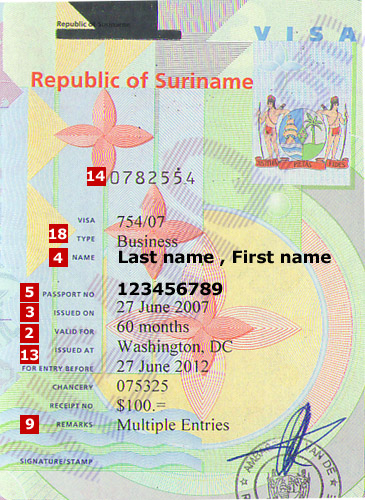Suriname Embassy list in Libya
Need help?Chat with us
Why Trip Registration at the Suriname Embassy is Important
Registering your trip with the Suriname embassy is crucial for ensuring your safety and well-being while traveling abroad. In the event of a natural disaster such as earthquakes or floods, the embassy can provide timely alerts, evacuation plans, and shelter information. Additionally, during periods of political unrest, registered travelers can receive updates about safety conditions, avoiding potentially dangerous areas. In medical emergencies, the embassy can facilitate communication with healthcare providers and assist in finding necessary medical care. Knowing that the embassy has your travel information fosters a sense of security, allowing you to focus on enjoying your trip while being prepared for any unforeseen circumstances.
Suriname Embassy FAQs
Can the Suriname embassy assist in legal issues abroad?
Yes, the Suriname embassy can provide guidance and recommend local legal counsel to assist you in addressing legal issues while you are in Libya.What should I do if I lose my Suriname passport in Libya?
If you lose your passport, report the loss to the local authorities and then contact the Suriname embassy for assistance in issuing a replacement passport.Does the Suriname embassy provide assistance with finding local accommodations?
While the embassy can recommend local services, they do not directly arrange accommodations. However, they can help point you in the right direction.Is there a fee for services provided by the Suriname embassy?
Yes, certain services may require a fee, including notarization and documentation. It is advisable to check with the embassy for specific pricing.Can the Suriname embassy help me contact family back home?
Absolutely, the embassy can assist you in facilitating communication with your family or friends in Suriname in case of emergencies.
Services Provided by Suriname Embassies in Libya
Passport Services
- Issuance of new passports
- Renewal of existing passports
- Replacement of lost or stolen passports
Visa Issuance for Foreign Nationals
- Processing visa applications for non-Suriname citizens
Assistance in Legal or Medical Emergencies
- Support with local legal matters
- Emergency medical assistance referrals
Travel Alerts and Safety Updates
- Timely updates regarding travel safety, natural disasters, and political situations
Support for Nationals Detained Abroad
- Legal assistance and communication support for Suriname nationals in detention
Summarized Diplomatic Presence
Suriname maintains a diplomatic presence in Libya through its embassy, located in Tripoli. The embassy plays a vital role in fostering bilateral relations, offering consular services, and promoting cooperation between the two nations. As the primary diplomatic mission, it conducts diplomatic activities, supports Suriname nationals in Libya, and engages with local authorities on various matters of mutual interest. The significance of this diplomatic presence lies in enhancing diplomatic ties, facilitating trade, and ensuring the safety of Suriname citizens abroad.
